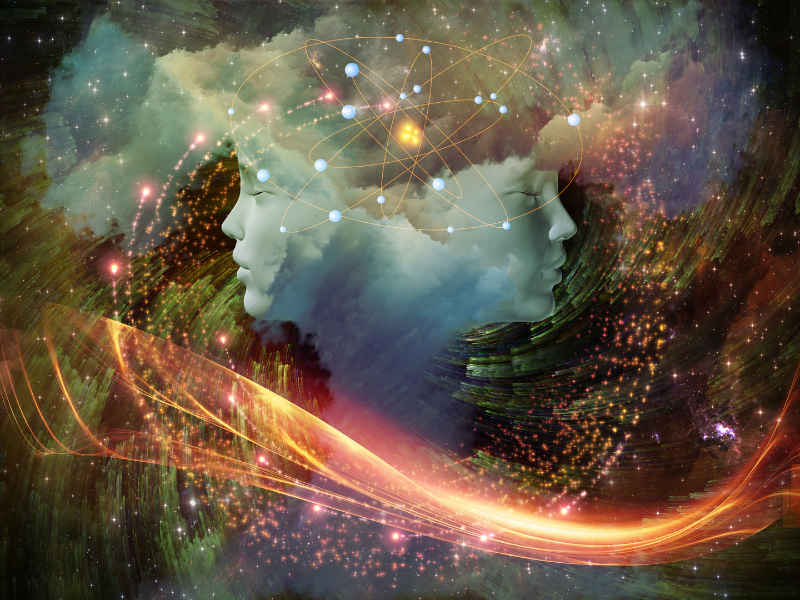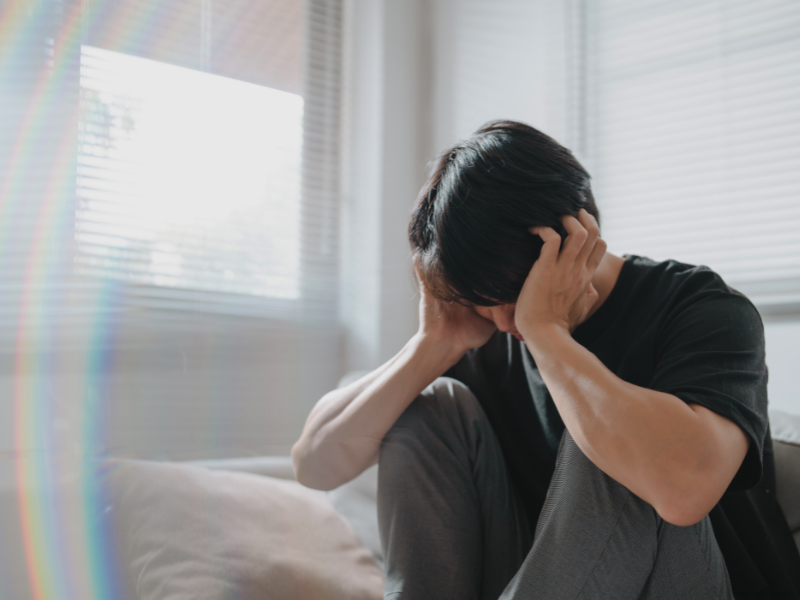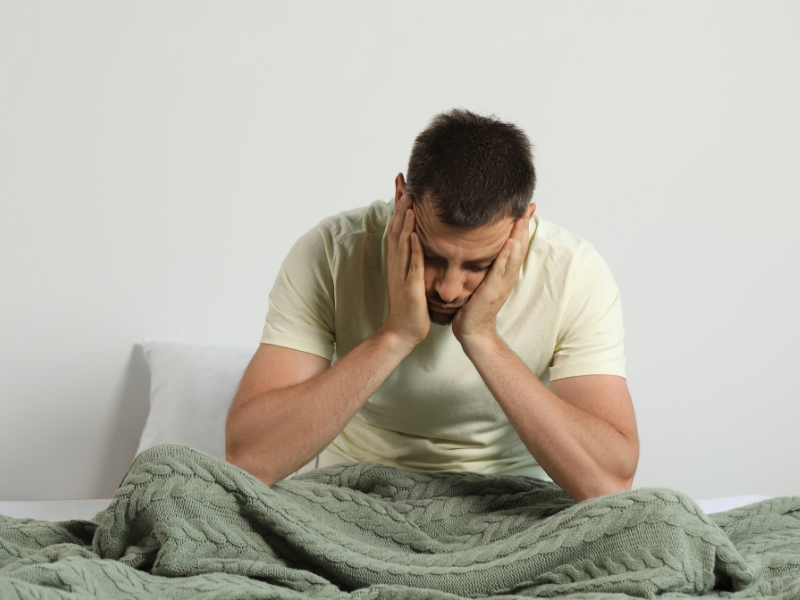


Everyone has experienced dreaming at least once in their lives. Usually, people tend to forget what they dreamt about when they wake up. However, some may be able to recall it throughout the day, especially if it were vivid dreams.
In this article, we’ll take a look at what vivid dreams are, why they happen, and if there’s any significance behind them.

Vivid dreams occur during rapid eye movement (REM) sleep and they can be described as dreams that are loose, fanciful, and often bizarre in narrative.
Upon waking up from a dream like this, you are likely to recall the events in great detail. It’s also been noted that such dreams are also correlated to concerns, mood, or social interactions in your waking life [1].

It is not uncommon to experience different types of dreams each night. Dreams are a reflection of our waking life and our subconscious. Some of the common types of dreams that people may experience are:
While both lucid dreams and vivid dreams are similar in terms of being vibrant and detailed, there is also a distinct difference between the two.
Lucid dreams are dreams in which the dreamer is aware of the fact that they are dreaming and is consciously controlling the dream.
In comparison, vivid dreams are dreams in which the dreamer may not be aware that they are in a dream state. They’re not able to control their dreams and it can sometimes be mistaken for reality.
A person may experience vivid dreams for many different reasons. Here are some of the common causes of vivid dreams.

Having too much stress and anxiety in your waking life can cause you to experience very vivid dreams. It is believed that the reason for that is that dreams play a role in emotional regulation and memory consolidation [2].
Additionally, those with post-traumatic stress disorder (PTSD) are also likely to experience intense nightmares or vivid dreams as they struggle to process the traumatic events that have happened [3].
Some sleep disorders may present with symptoms of vivid dreams alongside sleep disturbances. REM sleep behavior disorder (RBD), nightmare disorder, and narcolepsy are examples of sleep disorders that may involve vivid dreams.

Sleep deprivation is also another reason that may cause vivid dreams to take place. When you are sleep-deprived, you are likely to experience much greater sleep intensity and brain activity. This phenomenon is known as REM rebound which can cause you to experience more vivid dreams [4].
Some medications can cause the side effects of vivid dreams and nightmares. This includes melatonin, certain diabetic medications (e.g. ozempic, wegovy, and zepbound), medications that affect dopamine levels in the brain, and medications for ADHD [5].
Mental health also plays a role in the type of dreams that can occur. Those with mental health conditions may experience more frequent vivid dreams than those without any.
Depression, anxiety disorder, post-traumatic stress disorder (PTSD), and schizophrenia are conditions that are linked to vivid dreams.

Pregnancy-related dreams commonly happen during the last trimester of pregnancy with many women reporting frequent nightmares.
There are many theories as to why these pregnancy dreams may take place, including hormones, stress and anxiety, and frequent sleep disruptions [6]. If it starts to affect your waking life, you may want to consult a healthcare provider for proper treatment.

Vivid dreams can have various effects on your sleep and overall well-being. These intense dream experiences can lead to side effects such as:
If you’re having vivid dreams regularly, seeking appropriate treatment for underlying mental health conditions may help reduce their frequency and intensity. This, in turn, can improve your sleep and overall well-being.
If you are looking for ways to reduce the frequency of vivid, realistic dreams and get better sleep, you may want to consider these effective options:
Vivid dreams occur due to various factors in your waking life such as stress, sleep disorders, sleep deprivation, medications, mental health conditions, or pregnancy. While they may affect sleep patterns, there are strategies to reduce the frequency of it.
If you want to stop letting vivid dreams prevent you from getting a good night’s sleep then you might want to check out ShutEye® app. ShutEye® is a science-backed sleep app that tracks your sleep cycle and offers recommendations to ensure you receive the best quality sleep. Try it today!
de Bellefonds, C. (2024) Your Vivid Pregnancy Dreams Are Totally Normal. Here's What They Mean [online]. Available at: https://www.whattoexpect.com/pregnancy/symptoms-and-solutions/pregnancy-dreams-and-daydreams/
Mutz, J., & Javadi, A. (2016). Exploring the neural correlates of dream phenomenology and altered states of consciousness during sleep. Neuroscience of Consciousness, 2017(1). Available at: https://doi.org/10.1093/nc/nix009
Nicholson, C. (2007) Strange but True: Less Sleep Means More Dreams [online]. Available at: https://www.scientificamerican.com/article/strange-but-true-less-sleep-means-more-dreams/
Scarpelli, S., Bartolacci, C., Gorgoni, M., & Gennaro, L. D. (2019). The Functional Role of Dreaming in Emotional Processes. Frontiers in Psychology, 10, 459. Available at: https://doi.org/10.3389/fpsyg.2019.00459
Ulrich, A. (2024) What Medications Can Cause Vivid Dreams and Nightmares? [online]. Available at: https://www.goodrx.com/drugs/side-effects/medications-that-cause-nightmares-and-disturbing-dreams
Withe, M. (2024) PTSD nightmares [online]. Available at: https://www.medicalnewstoday.com/articles/ptsd-nightmares